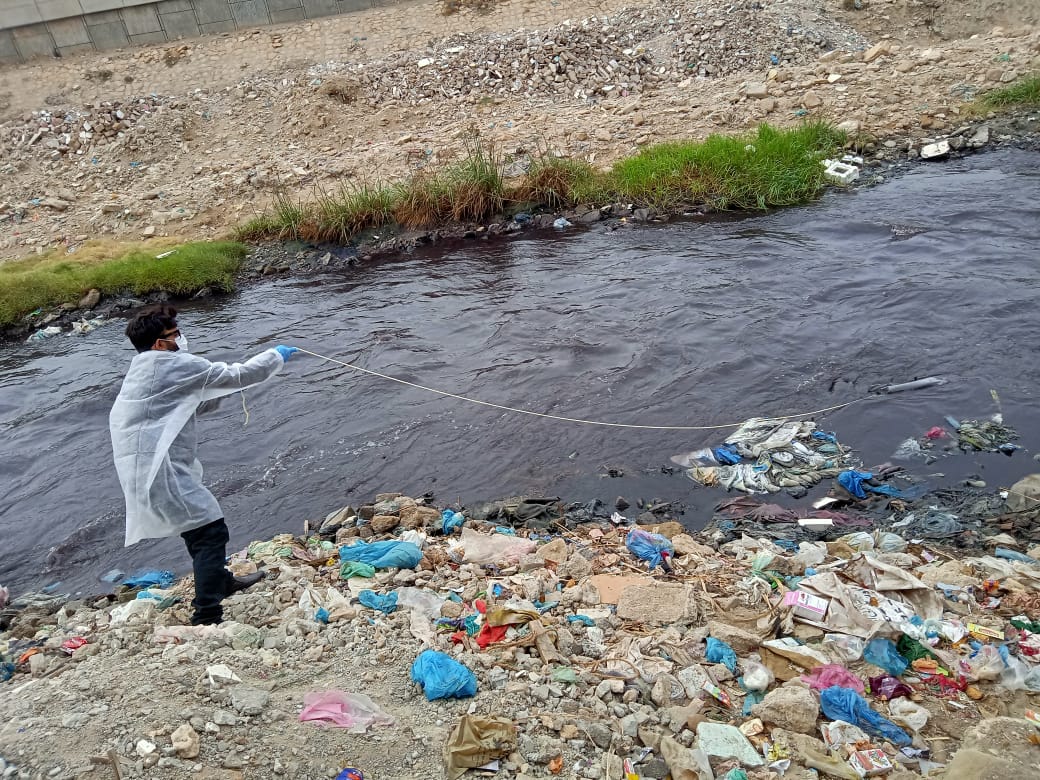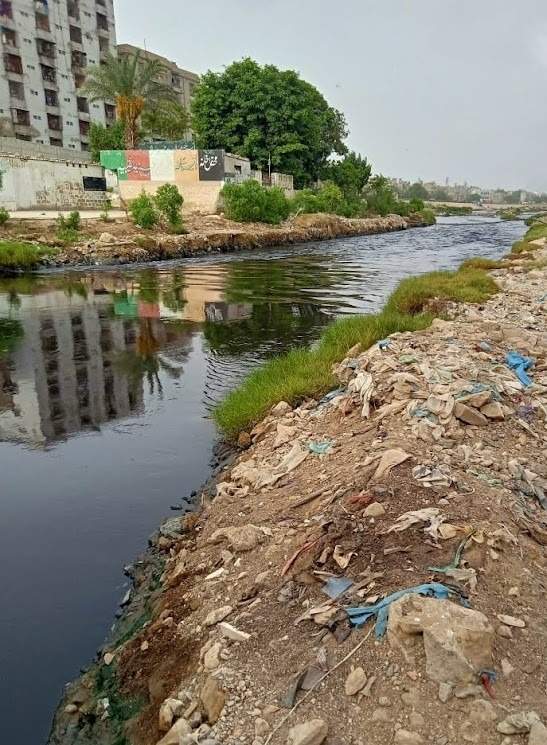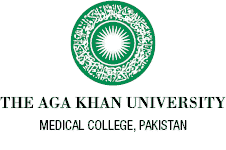
Wastewater surveillance for SARS-CoV-2 in Karachi
Study title: Environmental surveillance for COVID-19 using SARS-CoV-2 RNA concentration in wastewater-a study in District East, Karachi, Pakistan.
Study team: Dr. M. Imran Nisar (PI); Dr. Fyezah Jehan (Co-PI; Chair, Pediatrics); Dr. Nadia Ansari, Ms. Usma Mehmood; Ms. Farah Khalid; Dr. Abdul Momin Qazi; Mr. Hussain Kalimuddin; IDRL: Mr. Furqan Kabir; Ms. Fatima Aziz; CITRIC center for Bioinformatics: Dr. Waqasuddin Khan; Ms. Samiah Kanwar
Study collaborators: NIH, Pakistan: WHO, Pakistan; DHO, Karachi-East; Yale University
Study sponsor: PATH, USA; Bill and Melinda Gates Foundation and Global Innovation Fund
 Study site
Study site: District East, Karachi, Pakistan
Background: Wastewater surveillance helps in tracking diseases of public health importance. Surveillance is possible when a pathogen or its particles, such as genetic material, passes through the gastrointestinal system of humans and is detectable in the wastewater. This is true for SARS-CoV-2, the virus that causes COVID-19.
Epidemiological research showed that wastewater surveillance can signal the outbreak of COVID-19 in a community, underpinning its potential as a disease early warning system (EWS). Further, viral variants are identified through genomic sequencing of samples even before clinical specimen.
Study aims: Dr. Imran Nisar, Vice-Chair for research and Assistant Professor at the Department of Paediatrics and Child Health, led a study to predict COVID-19 outbreak in District East, Karachi through wastewater surveillance. Additionally, the project aimed to identify the viral variants circulating in the community using next-generation genomic sequencing.
Study methods: The sewage system of Karachi comprises of both formal and informal drainage system. There are no functional sewage treatment plants, so, raw sewage flows through ‘nallahs’ or open channels into the Arabian Sea. Four sampling sites were identified along the Lyari River, the main sewage channel for District East.
High-resolution satellite imagery or ‘Blue-line mapping’ was used to estimate drainage in the absence of available structured sewage maps. Bag-mediated filtration system (BMFS) was used to collect 151 raw sewage samples early in the morning twice weekly between June 10, 2021 and January 17, 2022. Samples were analyzed at the Biosafety level-2 (BSL-2) Infectious Disease Research Laboratory (IDRL) at AKU.
Study results: In total, 123 samples (81.5%) were found to be positive for SARS-CoV-2 RNA using pre-defined thresholds. The RNA concentration in samples were compared with reported cases of COVID-19 from the district using advanced statistical techniques. The study determined that the sample viral RNA concentration reliably predicted a rise and fall in cases in the district with a lead time of 14 days.
Next-generation genomic sequencing: Genomic sequencing of positive samples was performed using Illumina iSeq100. This showed that the SARS-CoV-2 delta variant dominated till October 2022, while the omicron variant was identified in November 2022, well ahead of the first specimen identified from clinical samples in Karachi.
Study Impact: This study was carried out despite global supply constraints and non-availability of sewage system maps. The impact of this study was two-fold; for one, the study established the feasibility and importance of sewage surveillance in monitoring infection outbreaks in a low-resource setting. Secondly, the study demonstrated the capacity in Pakistan for in-house genomic sequencing of pathogens; viral sequences from this study were among the first from Pakistan to be included in GISAID, a global genomic database.
Dissemination
Seminar: The study findings were discussed in a dissemination seminar organized by the study team in March 2022 at AKU. This event was attended by local and international audience, including representatives of the District Health Office, Karachi-East, the funding agency and study collaborators. The Guest of Honor was the Director, National Institutes of Health, Pakistan, General Dr. Aamer Ikram. Speakers included Dr. M. Masroor Alam from WHO, Pakistan.
At 1:03 hours: TED talk at the AKU 40th Anniversary event, “At the tipping point: a research showcase”, in March 2023 by study PI, Dr. Imran Nisar in the presence of her highness Princess Zahra Aga Khan
Poster presentations:
American Society of Tropical Medicine and Hygiene (ASTMH) Annual Meeting 2022, Seattle, USA
7th World One Health Congress 2022, Singapore
Institute for Disease Modelling Annual Symposium 2023, Seattle, USA,
Health Sciences Research Assembly 2023, AKU, Karachi
In the news:


